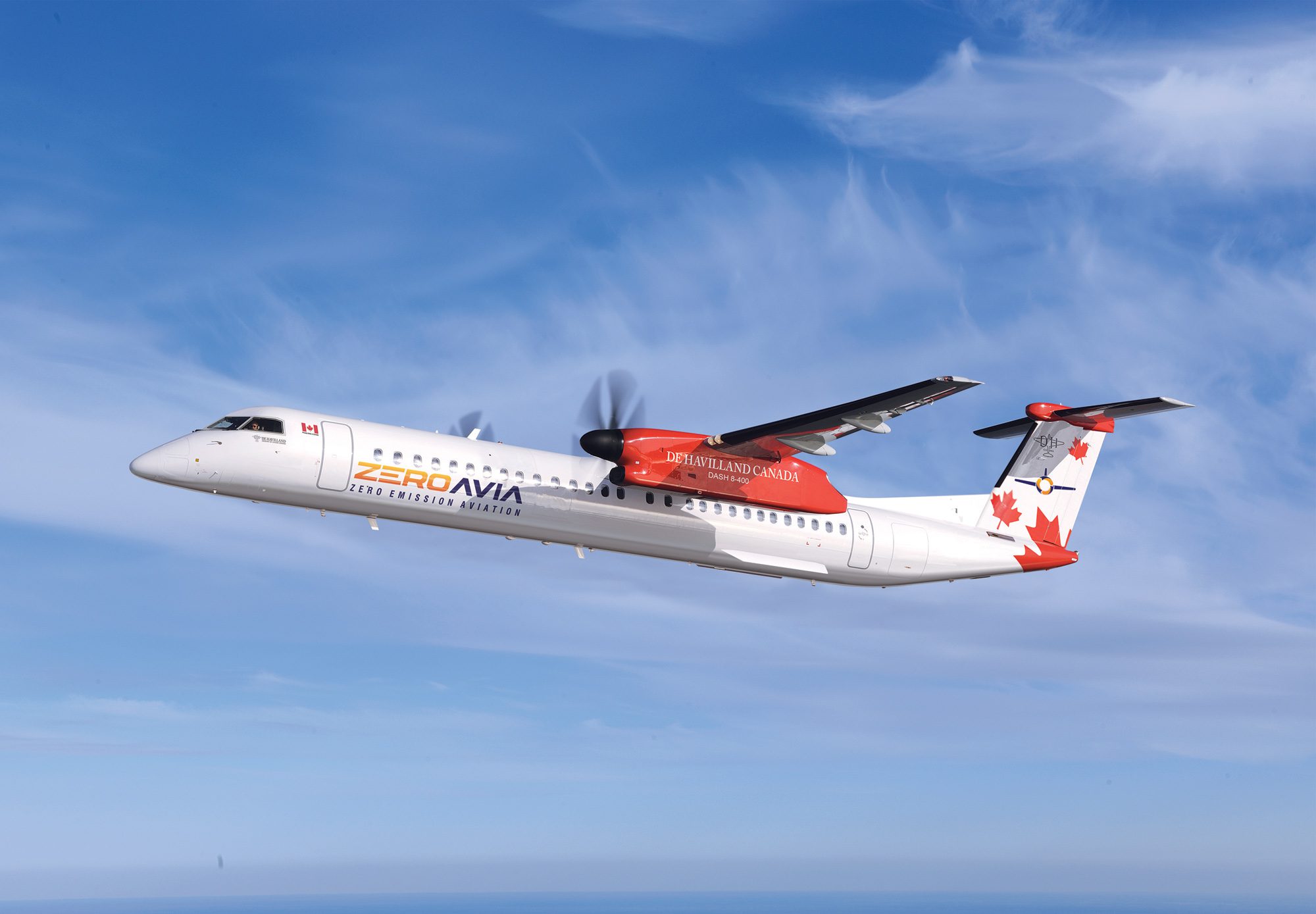
20211209 dash 8 400 zeroavia image 1
The De Havilland Canada Dash 8 is developing more and more into the preferred platform for a hydrogen-electric propulsion system of the future. On December 14, the Canadian airframer and ZeroAvia announced a Memorandum of Understanding to offer ZeroAvia’s hydrogen-electric fuel cell system on the Dash 8, both as a line-fit on new aircraft and retrofit to existing aircraft. Dash 8 set to become the preferred hydrogen platform.
Part of the MoU is the option for DHC to purchase fifty ZA2000-RJ engines, to be confirmed when the agreement is finalized.
The Dash 8 has been presented before as the solution for a hydrogen-electric propulsion system. In July, US start-up Universal Hydrogen announced a Letter of Intent with Icelandair to retrofit its Dash 8s with the hydrogen capsule system and MegniX electric motors. Ahead of November’s Dubai Airshow, ACIA Aero Leasing and Universal signed an MoU for the conversion of thirty turboprop aircraft, including ATR 72s and potentially Dash 8s. On December 8, US regional airline Connect Airlines signed an LoI with Universal for the conversion of twelve Dash 8-300s plus the purchase right for twelve kits. Entry into service is planned for 2025.
ZeroAvia announced in October that it will team up with Alaska Airlines to develop a hydrogen version of the Dash 8-400, with options for fifty engine kits. The plan is to test the system on a former Horizon Air Q400.
That ZeroAvia now connects directly with De Havilland Canada, is a smart and obvious move. As the owner of the intellectual property and rights to the Dash 8, getting DHC on board on this project is a logical thing to do. DHC and ZeroAvia will start working on a Service Bulletin on the way to getting a type certificate for the two-megawatt hydrogen-electric version of the Dash 8-400. This covers both line-fit and retrofit versions.
DHC will provide an aircraft that ZeroAvia will use as a flight demonstrator and test the aircraft on a suitable, existing route once one has been identified. The plan is to get certification within the next five years, after which the aircraft will be jointly marketed by the two companies.
“Partnering with De Havilland Canada puts ZeroAvia on a defined pathway to line-fitting into new airframes and signals OEM appetite to make the switch to certified, zero-emission propulsion as soon as possible”, ZeroAvia CEO Val Miftakhov said in a media statement.
De Havilland Canada is also involved in the testing and certification of a hybrid-electric engine that will be developed by Pratt & Whitney Canada, offering a Dash 8-100 for the program. First ground tests are planned for next year and the first flight in 2024, P&WC announced in July.
ZeroAvia announced an agreement with United Airlines earlier this week. The airline will invest $35 million in the start-up and intends to purchase fifty ZA2000-RJ engines plus fifty options to retrofit them on the Mitsubishi CRJ550. Which is also a former Bombardier product, of course…
Views: 2



